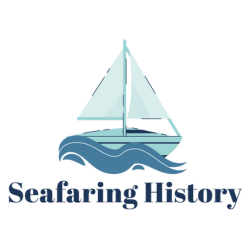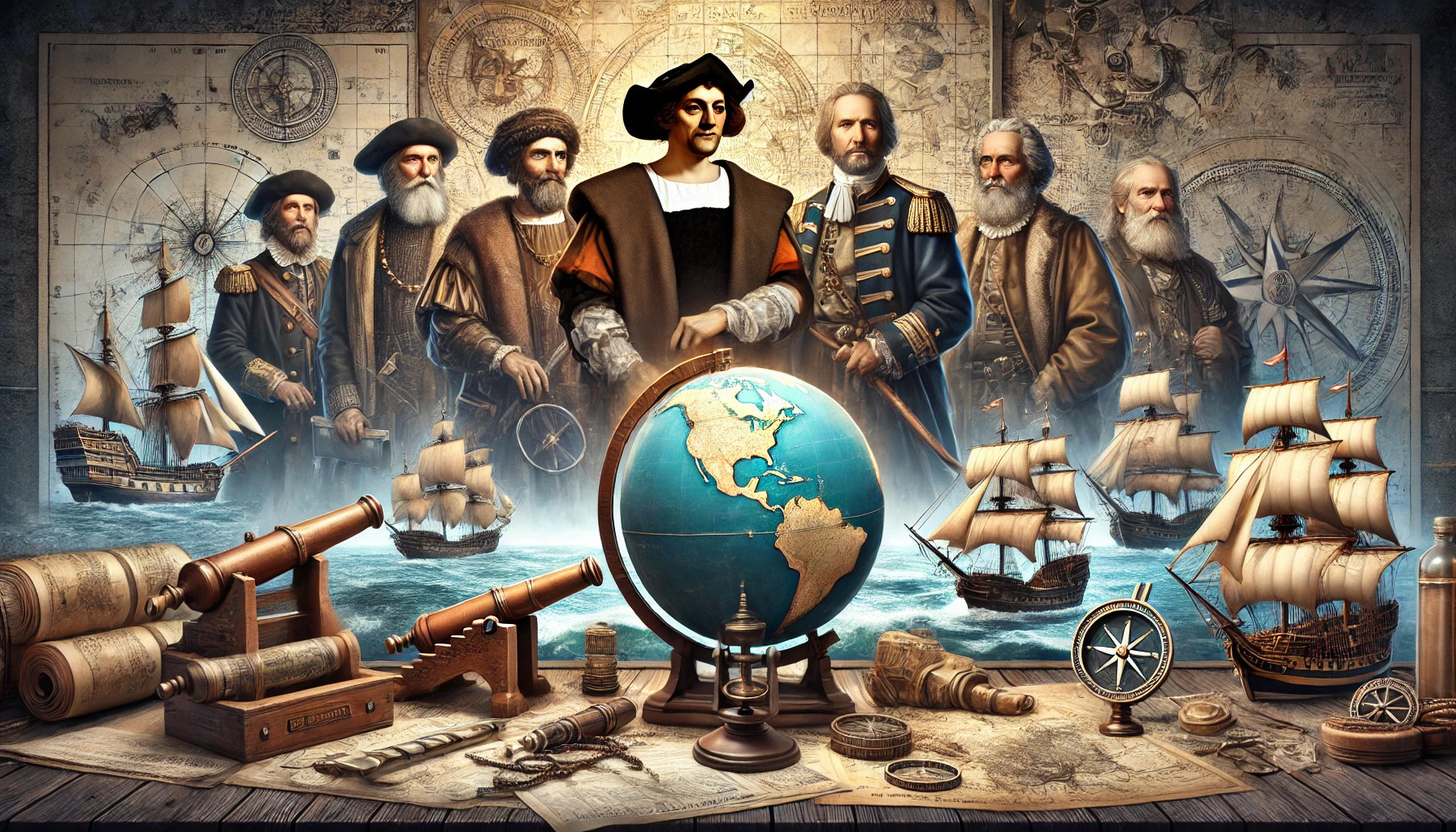Maritime exploration has played a crucial role in shaping the world as we know it. From connecting distant lands to discovering new trade routes, famous maritime explorers have left lasting impacts on history and culture. Their daring journeys not only expanded geographical knowledge, but also transformed economies and influenced societies around the globe.
Many of these explorers, like Christopher Columbus and Ferdinand Magellan, are celebrated for their bold adventures across the seas. Their explorations opened up new territories and initiated exchanges that changed the course of human history. The legacies of these explorers continue to resonate today, influencing modern navigation and global trade.
Understanding the lives and achievements of these maritime pioneers reveals the bravery and curiosity that drove them. Each explorer’s story is filled with adventure, challenges, and the quest for knowledge. Readers will discover how these individuals ventured into the unknown, making waves that would shape generations to come.
The Age of Discovery
The Age of Discovery, spanning roughly from the 15th to the 17th centuries, marked a significant period of exploration. During this time, European powers expanded their horizons through innovative navigation technologies and discovered crucial maritime routes that connected distant lands.
Technological Innovations in Navigation
Several key advancements in navigation played a crucial role during the Age of Discovery. The invention of the compass allowed sailors to determine their direction more accurately. This was essential for journeys on the open sea.
Another important tool was the astrolabe, which helped explorers measure the angle of celestial bodies. This enabled them to determine their latitude while at sea.
Ship designs also improved significantly. The caravel, a small, fast ship, became popular for long voyages. Its triangular sails allowed it to sail against the wind, opening up new possibilities for exploration. These innovations helped explorers navigate uncharted waters and paved the way for global exploration.
Key Maritime Routes
The Age of Discovery saw the establishment of several key maritime routes that connected Europe with Asia, Africa, and the Americas. One of the most significant was the Route to India. Explorers like Vasco da Gama sailed around Africa to reach India, tapping into the lucrative spice trade.
The Atlantic Slave Trade route became another crucial passage. It connected Europe, Africa, and the Americas, facilitating the transfer of goods and people. This route had a lasting impact on global demographics and trade patterns.
Additionally, the Transpacific routes opened by explorers like Ferdinand Magellan linked the Americas with Asia, allowing for the exchange of goods such as silver, silk, and spices. These routes transformed global trade and shaped economic interactions in the centuries that followed.
Notable Explorers and Their Voyages
Many famous maritime explorers played crucial roles in shaping world history through their voyages. They discovered new lands and established trade routes that connected different cultures.
Christopher Columbus and the New World
Christopher Columbus is well known for his voyages across the Atlantic Ocean. In 1492, he set sail from Spain with the aim of reaching Asia. Instead, he landed in the Bahamas, marking the beginning of European exploration in the Americas.
Columbus made four trips to the New World. He is credited with opening up the Americas for European colonization. His voyages created lasting impacts on trade, culture, and history.
Despite his achievements, Columbus’s legacy is mixed. His arrival led to significant changes for indigenous populations, often resulting in conflict and suffering.
Vasco da Gama and the Sea Route to India
Vasco da Gama is remembered for discovering the sea route to India. In 1497, he sailed from Portugal, navigating around Africa’s Cape of Good Hope.
His journey was the first to link Europe and Asia by sea, opening up new trade opportunities. Da Gama’s expedition helped establish a direct trade route for spices and other valuable goods.
This route significantly changed global trade dynamics. His success marked the rise of Portugal as a major maritime power in the 16th century.
Ferdinand Magellan and the Circumnavigation of the Earth
Ferdinand Magellan is famous for leading the first expedition to circumnavigate the globe. In 1519, he set out from Spain with five ships and a determination to find a westward route to the Spice Islands.
His journey encountered numerous challenges, including harsh weather and conflicts with indigenous peoples. Despite losing his life in the Philippines, his expedition completed the journey in 1522.
The voyage confirmed the Earth’s roundness and provided valuable information about global geography. Magellan’s legacy is significant, as it inspired further exploration and expansion.
Impact on Global Trade and Relations
Maritime explorers had a significant role in shaping global trade and international relations. Their voyages opened new routes, connecting distant lands and fostering exchanges that transformed economies and cultures.
Cultural Exchanges
As explorers traveled to new regions, they introduced and exchanged a variety of goods, ideas, and customs. This flow of cultural exchange enriched societies, leading to the spread of languages, cuisines, and technologies.
For example, the spice trade opened opportunities for culinary innovation across continents. Items like pepper, cinnamon, and nutmeg became highly sought after, influencing local diets and cooking practices.
Moreover, these interactions helped to bridge gaps between different civilizations. They fostered a sense of curiosity and understanding, leading to greater collaboration and peace among various cultures.
Colonization and Empire Building
Explorers often paved the way for colonization, shaping empires and their economies. Many European nations seized territories for resources and strategic advantages. This expansion led to the establishment of trade routes that facilitated the flow of valuable goods.
Control over trade routes reflected power dynamics between nations. For instance, Spain and Portugal established large empires through their voyages, dominating the spice trade and other lucrative markets.
This colonization, while beneficial for some, often resulted in complex consequences for native populations. It imposed foreign cultures and systems, changing social structures and economies in these regions. The legacies of these actions are still evident in global relations today.
Legacy and Modern Reflections
The impact of famous maritime explorers extends far beyond their voyages. Their legacies are preserved in various ways, such as through museums and ongoing discussions about exploration’s effects on societies. These influences shape how modern audiences view the spirit of adventure and its historical consequences.
Maritime Museums and Historical Societies
Maritime museums play a crucial role in celebrating the achievements of explorers. They house artifacts, maps, and personal items that tell stories of legendary journeys. Exhibits often highlight explorers such as Bartolomeu Dias and his groundbreaking route around the Cape of Good Hope.
In addition, historical societies support research and educational programs. They provide resources for schools, enhancing student engagement with history. Events and lectures bring communities together to learn about maritime heritage. These initiatives ensure that the contributions of explorers are recognized and appreciated by future generations.
Contemporary Views on Exploration and Its Consequences
Today, maritime exploration prompts reflection on its benefits and challenges. Many view it as a source of knowledge and cultural exchange. It expanded global trade and fostered connections between distant lands. This shared heritage is often celebrated in various cultures.
Yet, modern perspectives also scrutinize the consequences of exploration. Discussions about colonialism and environmental impacts are more common. The adventures of explorers are re-examined through these lenses, encouraging a balanced understanding of history. This broader view helps societies appreciate both achievements and lessons learned from the past.

